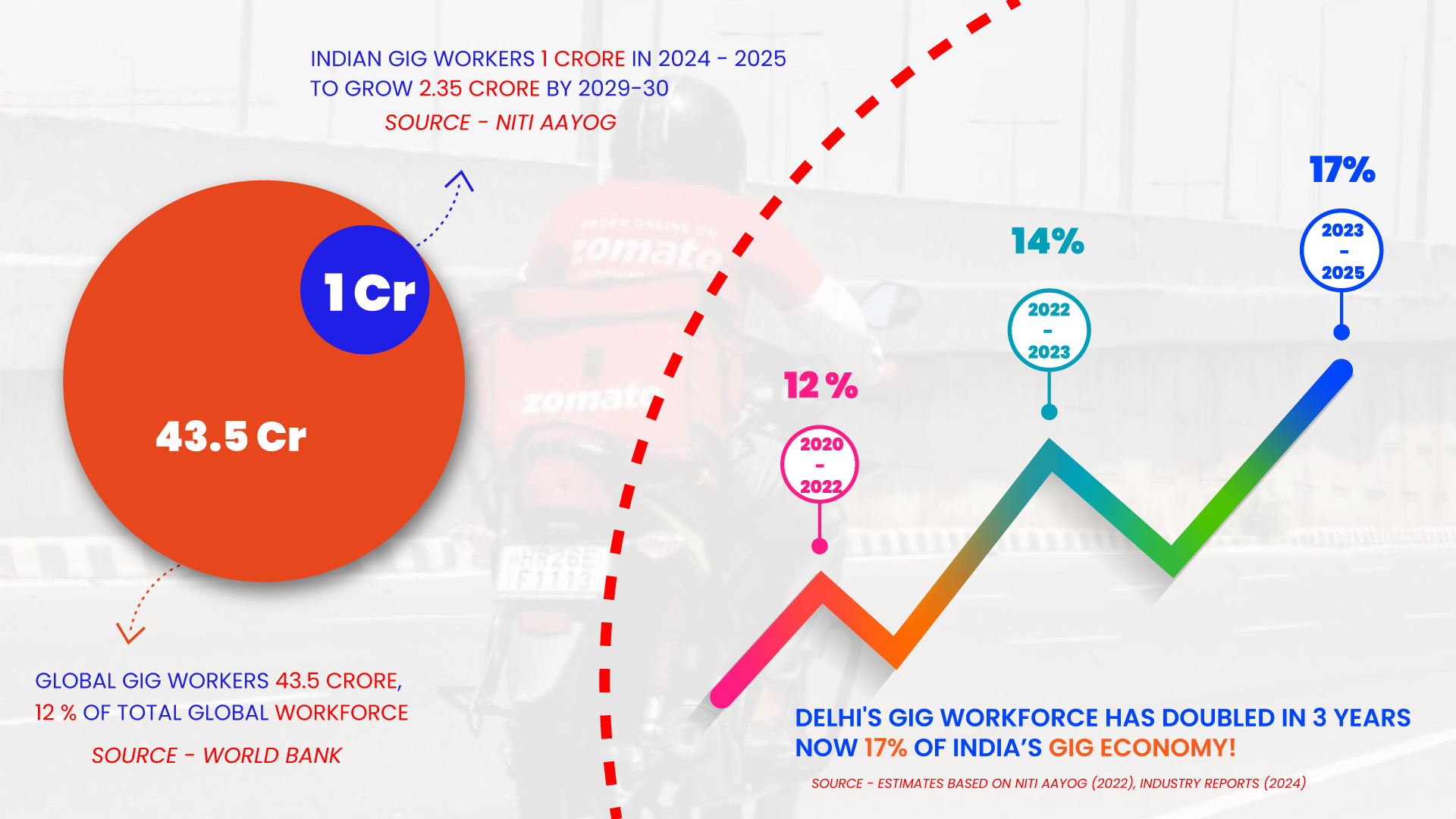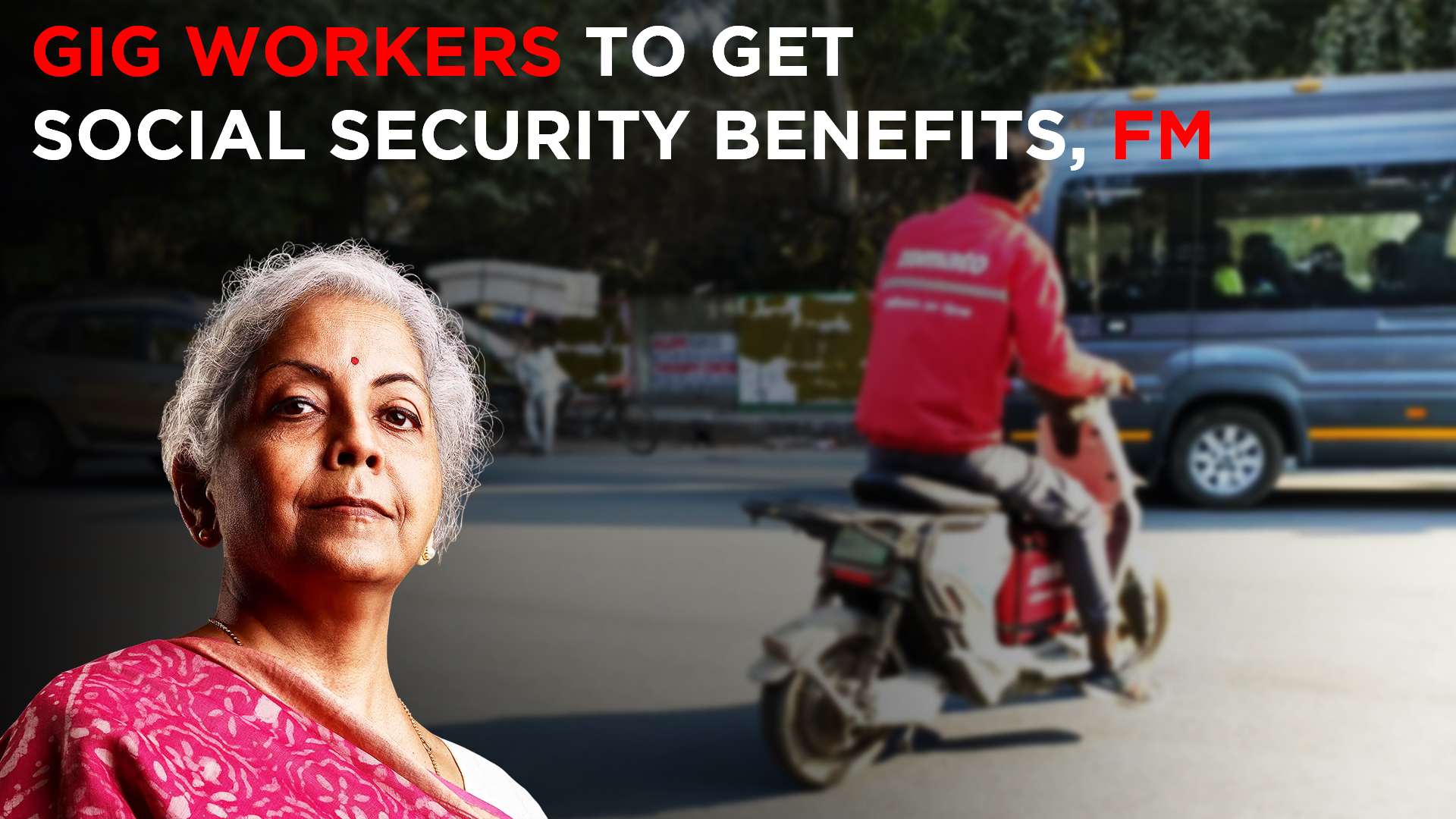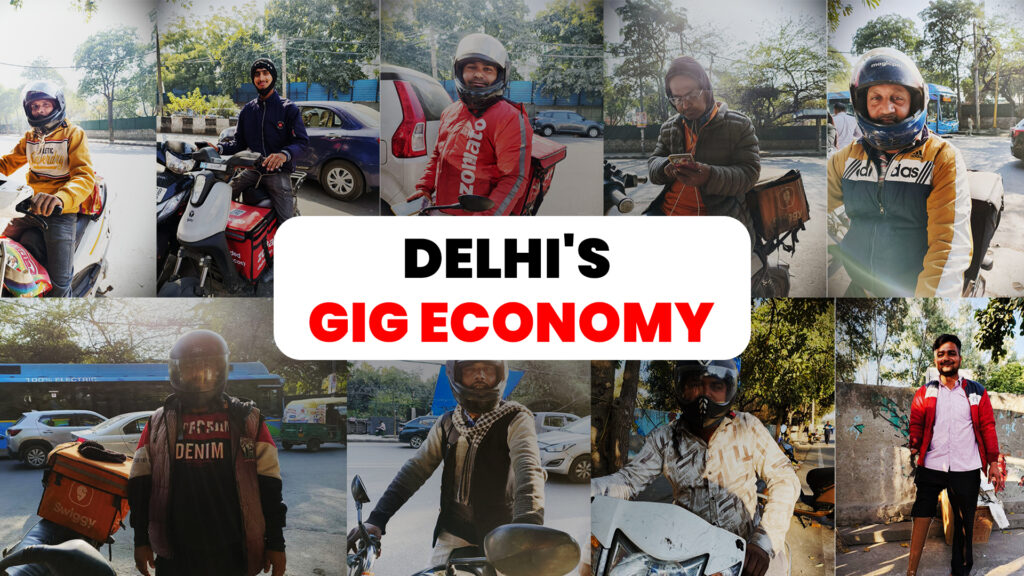In a very short span, thousands of gig workers have become the backbone of Delhi—delivering food, driving people to their destinations, making e-commerce deliveries, and taking up many other lesser-known jobs. The 2025 Budget promises a number of social welfare benefits to this unorganized sector, ranging from the issuance of ID cards to their inclusion in health care schemes.
The Voices talked to a cross-section of gig workers in Delhi, learning about the avenues the new budgetary provision opens for them and their expectations from it. Most gig workers run multiple jobs to make ends meet, offering flexible schedules but lacking the stability of traditional jobs.
The gig economy is growing fast. It now includes 12% of the global workforce, with 43.5 crore workers worldwide. In India, as per NITI Aayog’s data, the number of gig workers is expected to grow from 1 crore in 2024-25 to 2.35 crore by 2029-30.

Delhi has lakhs of gig workers who work for companies like Zomato, Swiggy, Blinkit, Ola and Rapido. An important part of the economy, these workers struggle with low and uncertain salaries. Company policies, fuel prices make their earnings unpredictable. While they sometimes get bonuses, they lack job security, health benefits and legal protection. As gig workers grow, more people are asking for better wages and social security. Many hoped the 2025 Budget would bring real changes, not just small benefits.
A Helping Hand From the Government

The government has extended relief to gig workers, who largely constitute an unorganized sector. These benefits will help them with social and health benefits. In the 2025 budget, the government announced two main benefits for gig workers, which include registration on the e-shram portal of the Ministry of Labor and Employment, Government of India. Registration on the e-shram portal allows the person to hold an I card issued by the government, enabling him or her to get access to government schemes and social benefits. As per the budgetary provision, gig workers will now also have access to government run health insurance schemes under PM Jan Arogya Yojana. This shall entitle workers and their families to get Rs 5 lakh annually for medical treatment.

29 years old Zomato worker Pardeep Kumar from Singalpur village works around 12 to 14 hours a day covering 50 to 60 km. He said since he was not educated, he wasn’t aware of how to fill out the e-Shram registration. He and his brother plan to get help and ensure their details are registered to avail government facilities. Sangam Pal, a Swiggy worker, says he has already registered on e-Shram but has not received any benefits yet. He added that the process was tardy and confusing. He demands that the government float a single platform where gig workers can register and access benefits directly.

Monu, 25, works as a porter and spends 10 hours (100 to 150 km) to earn two square meals a day. He adds that lifting heavy parcels affects his health. He wants health insurance and expects companies and the government to help with it.

Raja, age 24, is a Zomato worker who studies on weekends. He puts in 6 to 8 hours to pay for his college fees, but late payments and order cancellations make it hard for him to survive. He wants the government to step in by introducing a law for making timely payments. Amar, who works with Magicpin, a food delivery partner, says he earns extra money on weekends but believes gig workers should get a fixed per-kilometer rate and better recognition like in other countries.

Shehnawaz, 41, a Swiggy worker from Haiderpur village, says more and more people are joining gig work as enough employment opportunities are unavailable. He supports his family of five members and works overtime from 12 p.m. to 1 a.m. Arun, a Rapido driver who dwells in the Shakurbasti slum, recently got married. His biggest concern has been the rise in fuel prices and soaring cost of living. He believes that a fixed salary and fuel subsidies can help him build a secure future.

Shubham Kumar earns his livelihood through various platforms. He divides his time between working for multiple companies to earn extra income.

Another gig worker, Nitin, age 28, from Shalimar Bagh, lost his right hand and leg in an accident. He claims that neither his employer nor the government have helped him. He demanded that the government should compensate injured gig workers.
Copy editor: Aaryanshi Mohan

